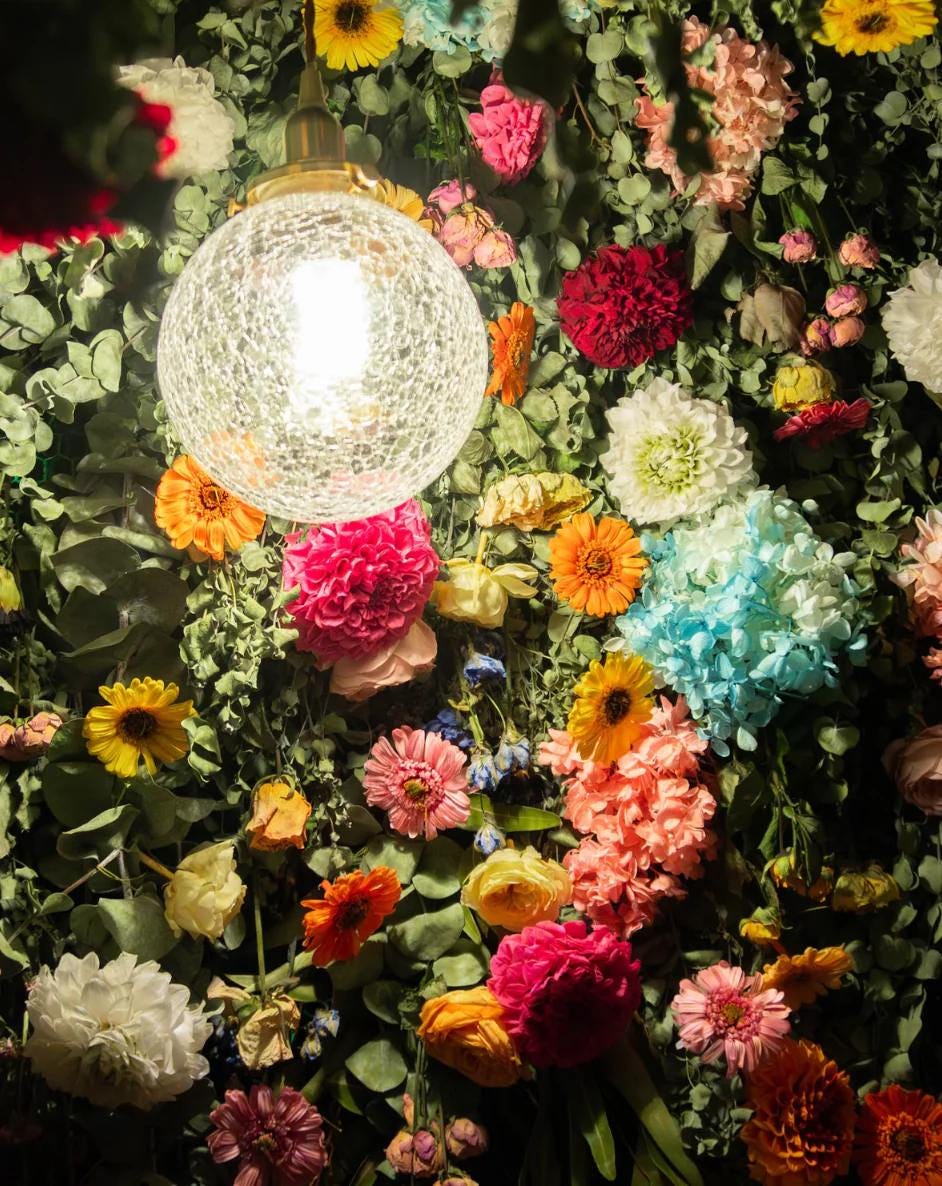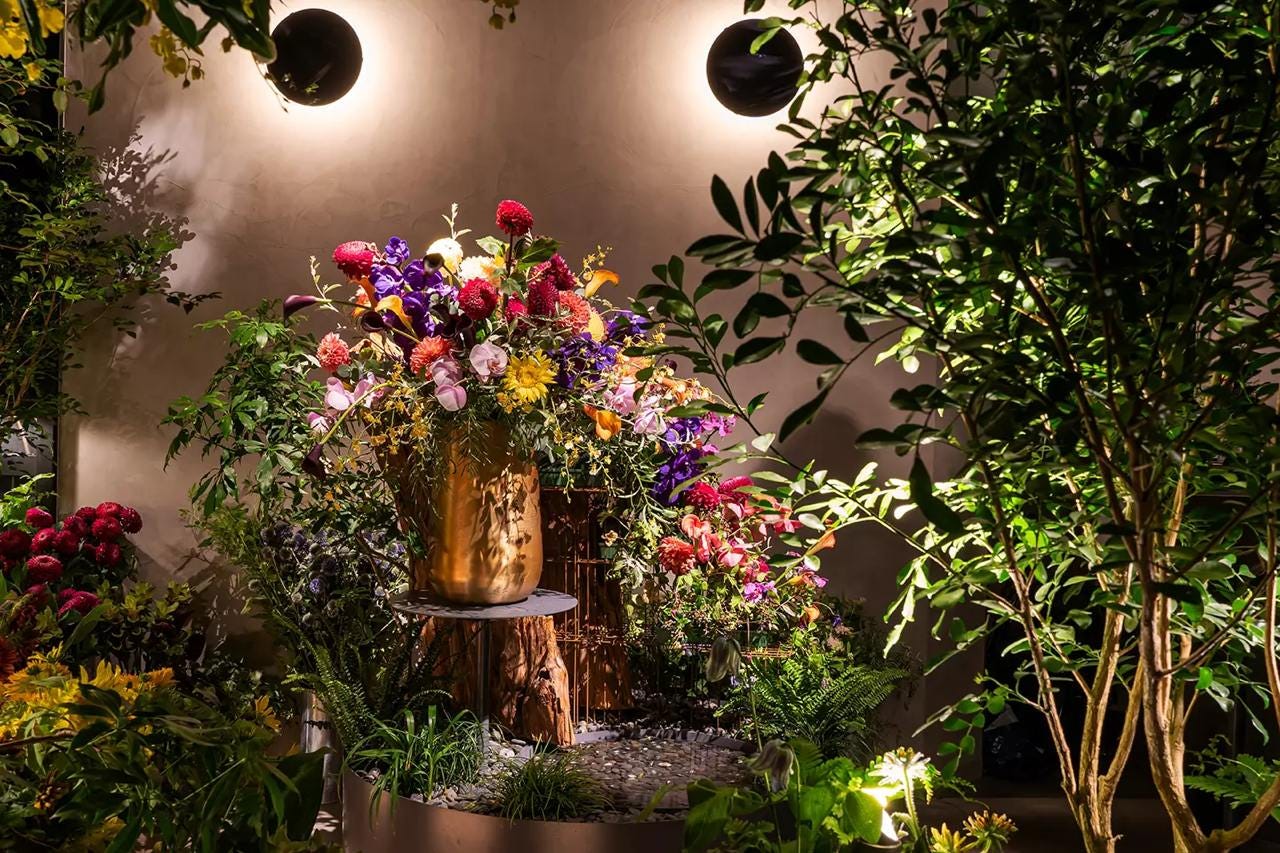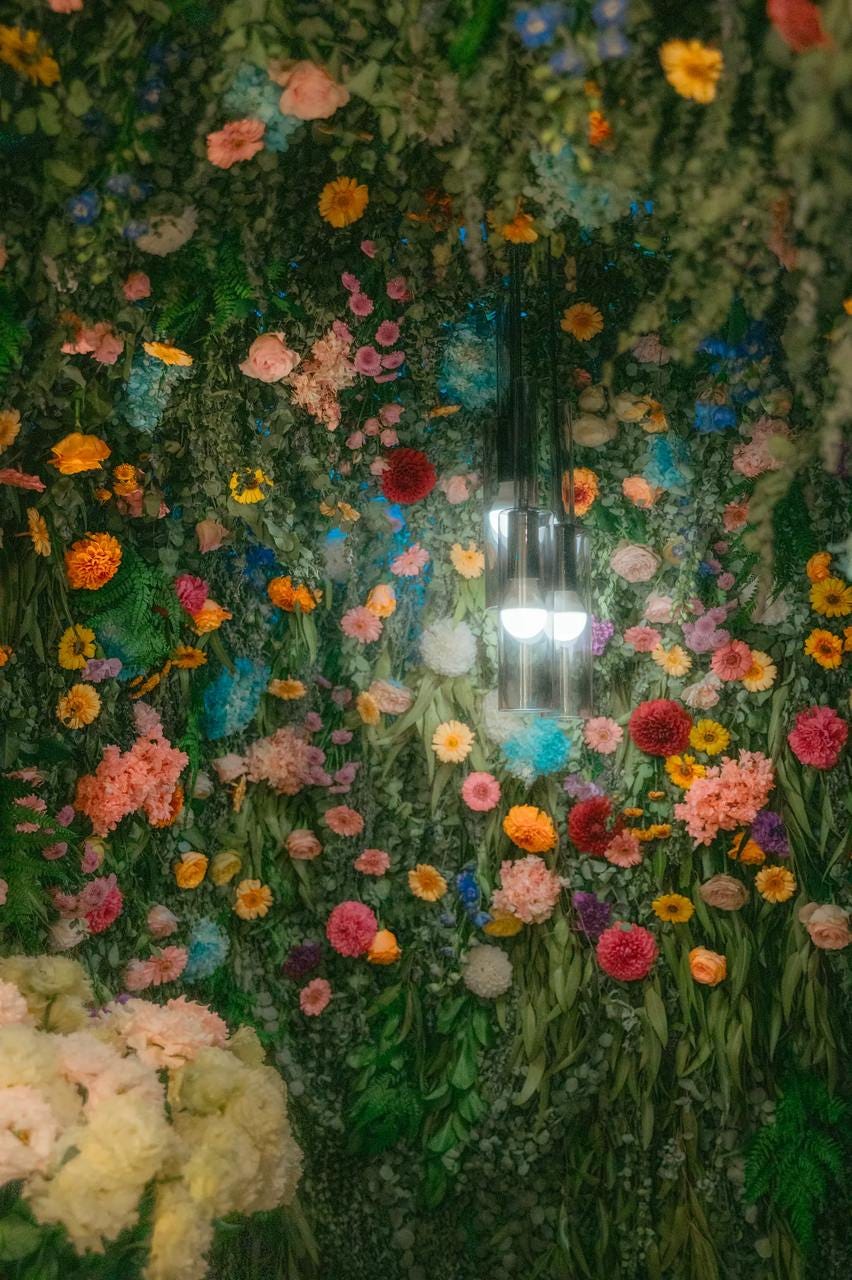Japan has always been famous for its gardens. This horticulturist streak has shown itself in many forms, much of which is worth examining and digging deeper. Today, I want to look at maybe the most hyped, expensive, and social-media-driven gardens in all of Japan. Testing the limits of what a garden even is, I want to introduce Ebisu Flower Park.
Ebi-who?
The concept is based off the Tokyo suburb where it all began, Ebisu. This is a high-end suburb in the centre of Tokyo, a place that is most famous for being the headquarters of Yebisu (Yes, Yebisu, not Ebisu) Beer Company and Brewing. While the other icon of Ebisu is the Garden Place, a giant shopping mall and tower, the suburb rarely shares the same sentence with Flower or Park.
What Ebisu has is wealthy people. Actually, a lot of wealthy people, who could want that flower experience found elsewhere in Japan. The catch is that they don’t want to share these flowers with the public. So a private garden is in order.
How much would you pay for exclusivity?
Maybe this is the central question at the heart of the discussion. The answer that Ebisu has found is ¥88,000 which, depending on the conversion, is anywhere between $400USD to $800USD. I am fully aware that I write this as as slightly hay-fever-suffering straight man; while I understand the general appeal of flowers, I am astounded by the pricing.
To be clear, this is the membership fee.
Garden Gatekeeping
Yes, you read that correctly. Ebisu Flower Park is not a public garden where you casually waltz in, stop and smell roses and other odorous plants, and maybe snap a few Instagram images.
This is a members-only garden.
So what does that membership actually get you?
Of course, it gets you in the door. This means exclusive access to the newly manicured flower displays, any seasonal editions, and your entry to the cocktail bar (where you can very luckily spend more to buy flowery drinks). The item that provides the most value perhaps is knowing that you’re in the elite. You no longer lead with an elbow through crowds, but buy your convenient and perfect photo opportunity. It’s flowers, but make it luxury. The other specialty is that you can still bring your own riff-raff in; every member can bring 3 guests. As such, its a relatively simple way to signal to a certain crowd that you know what’s in, and you have the secret ticket.
Flowers might be more than just a pretty item that works well with cocktails. Ebisu Flower Park may have worked out that flowers are part of human nature, or at least human culture. Flowers have always been a status symbol. The Edo period was when samurai and merchants obsessed over cherry blossoms and chrysanthemums, with these plants adorning the castle grounds of the Japanese elite. Around the same time, the Netherlands had a bout of tulip mania that drove certain people to bankruptcy. Even the good Sir Elton John had his own bankruptcy run-ins with the gilded lily. So it is no surprise that this continues in modern Tokyo. Here, Ebisu Flower Park has transformed this historic obsession into a 21st-century money machine.
Selling Exclusivity
It might be contradictory to say, but Ebisu Flower Park is not just about the flowers. It’s exclusivity. Where else in Japan can you host private events, sip socially prestigious wine and cocktails, or bring a date to impress them with your taste and even more importantly, disposable income? Nowhere that I know of, but in fairness I am merely a Substack writer. This isn’t a classical Japanese garden. This is your new petal-wrapped status symbol.
Ebisu Flower Park suggest their garden to potential members through our favourite addiction—social media. The goal is to not only see the flowers, but be seen with the flowers. Beyond the curation that is expected of a high-end garden, the staff are instructed on how to best take photos and capture the flowers, lighting, and clients in the best way. These little things are what separates the Park from their garden peers. It is a place custom-built to be a content factory. For such an exclusive offer, surely money is a small price to pay.
Will It Wilt?
Ebisu Flower Park has moved. Or rather, I don’t know if it has moved as the location is always in an undisclosed place for non-members. What I mean is that it has expanded. The flower model has now spread across Japan. Even to cities that have thriving public gardens, this membership seems to be the new location of the middle class millennial.
Already there are 13 locations in Japan, which means they have almost tapped out on the domestic market and are looking for growth abroad. In 2025, they have plans to open up flower fronts in Singapore, Shanghai, Seoul, and the non-S cities of New York and London. It seems the photos have launched a mini movement for the flower followers of the world and everyone wants in.
As the Ebisu Flower Park gets more popular, the critics get more loud. And Ebisu Flower Park has its critics. There are many that point out the absurdity of spending hundreds of dollars on something you could enjoy for free even in Tokyo, at Shinjuku Gyoen or Ueno Park. As Japanese wealth gaps continues to widen and cities like Tokyo becomes increasingly stratified, places like Ebisu Flower Park may become more common. These third places that allow you to avoid the crowds, tick the social media boxes, and ultimately order a nice cocktail might be the way of the future. For better or worse, it’s a garden for the influencer age. I still believe or hope that many people continue to cherish the free and open gardens of our present. However, it does represents a new way of thinking about the role of nature in urban life.
I think the key question is the following: Would I pay ¥88,000 for a gardenship?
Let’s just say I’m more of a Shinjuku Gyoen kind of guy. Honestly, I hope most people feel the same about this floral flex. The good news? Humanity always finds a way to bring nature into our lives, whether it’s Dutch tulips, Edo gardens, or a scrappy houseplant on a windowsill. Natural beauty can still survive without a membership fee.







fascinating and very lovely pictures. Nature and beauty locked away for an exclusive group. so interesting.
I didn’t know about this place…thanks for sharing!